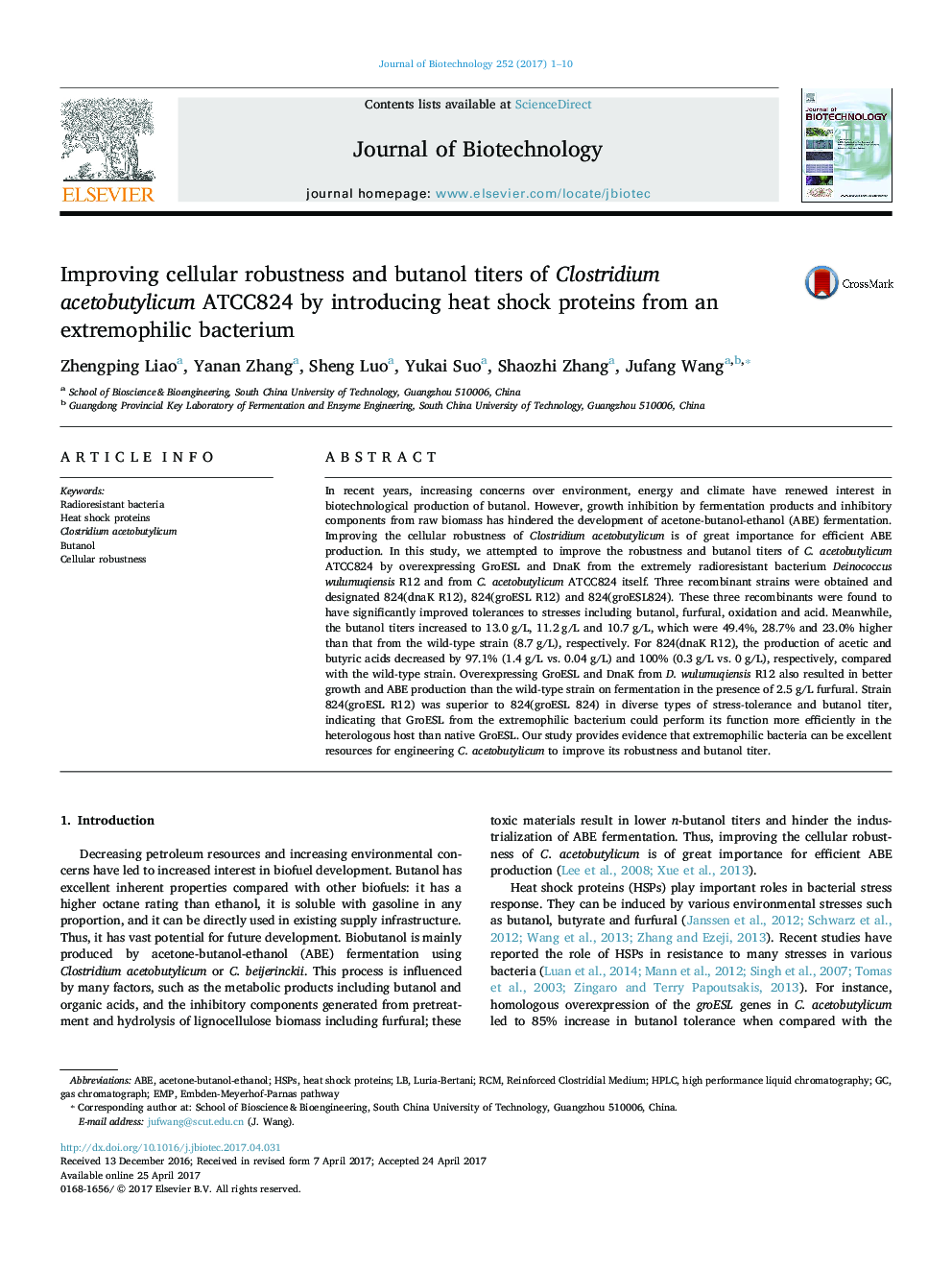| کد مقاله | کد نشریه | سال انتشار | مقاله انگلیسی | نسخه تمام متن |
|---|---|---|---|---|
| 4753623 | 1416992 | 2017 | 10 صفحه PDF | دانلود رایگان |

- The HSPs from a radioresistant bacterium were overexpressed in C. acetobutylicum ATCC 824.
- The butanol titer and the robustness of the recombinant strains were significantly improved.
- The HSPs from a radioresistant bacterium was superior to the native C. acetobutylicum proteins.
- The recombinant strain 824(dnaK R12), DnaK from D. wulumuqiensis R12, was the most robust among the strains.
In recent years, increasing concerns over environment, energy and climate have renewed interest in biotechnological production of butanol. However, growth inhibition by fermentation products and inhibitory components from raw biomass has hindered the development of acetone-butanol-ethanol (ABE) fermentation. Improving the cellular robustness of Clostridium acetobutylicum is of great importance for efficient ABE production. In this study, we attempted to improve the robustness and butanol titers of C. acetobutylicum ATCC824 by overexpressing GroESL and DnaK from the extremely radioresistant bacterium Deinococcus wulumuqiensis R12 and from C. acetobutylicum ATCC824 itself. Three recombinant strains were obtained and designated 824(dnaK R12), 824(groESL R12) and 824(groESL824). These three recombinants were found to have significantly improved tolerances to stresses including butanol, furfural, oxidation and acid. Meanwhile, the butanol titers increased to 13.0Â g/L, 11.2Â g/L and 10.7Â g/L, which were 49.4%, 28.7% and 23.0% higher than that from the wild-type strain (8.7Â g/L), respectively. For 824(dnaK R12), the production of acetic and butyric acids decreased by 97.1% (1.4Â g/L vs. 0.04Â g/L) and 100% (0.3Â g/L vs. 0Â g/L), respectively, compared with the wild-type strain. Overexpressing GroESL and DnaK from D. wulumuqiensis R12 also resulted in better growth and ABE production than the wild-type strain on fermentation in the presence of 2.5Â g/L furfural. Strain 824(groESL R12) was superior to 824(groESL 824) in diverse types of stress-tolerance and butanol titer, indicating that GroESL from the extremophilic bacterium could perform its function more efficiently in the heterologous host than native GroESL. Our study provides evidence that extremophilic bacteria can be excellent resources for engineering C. acetobutylicum to improve its robustness and butanol titer.
Journal: Journal of Biotechnology - Volume 252, 20 June 2017, Pages 1-10